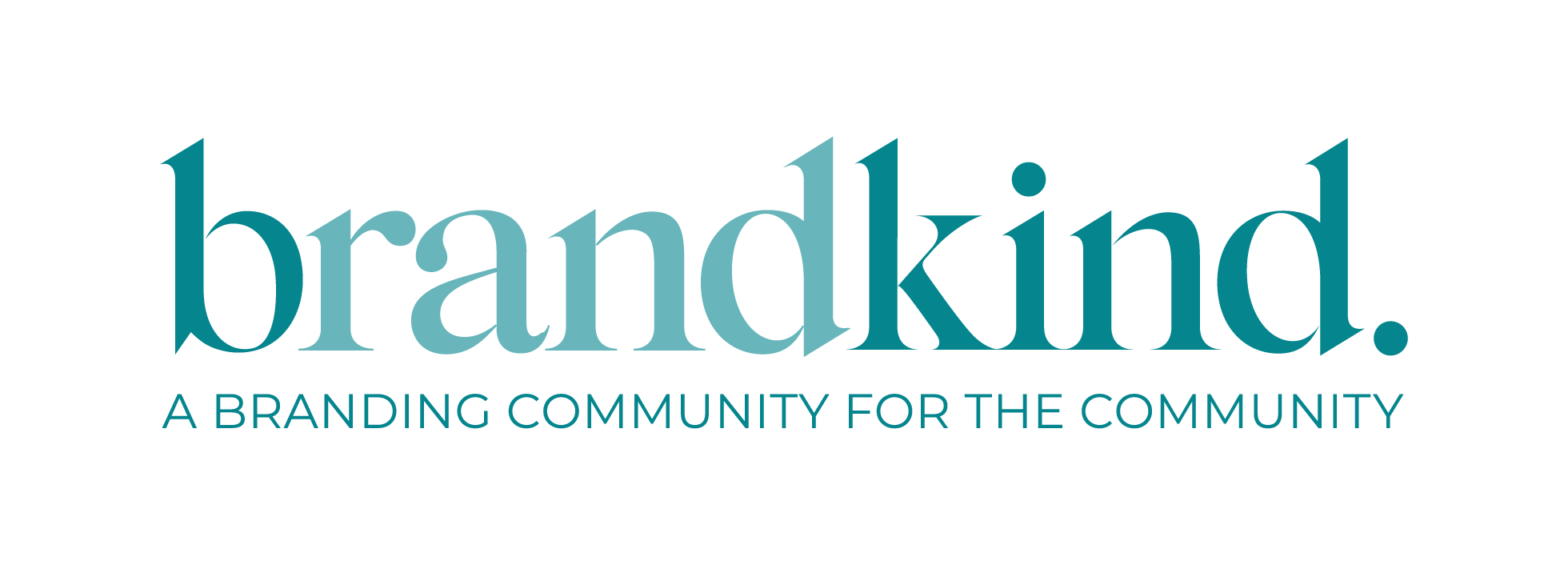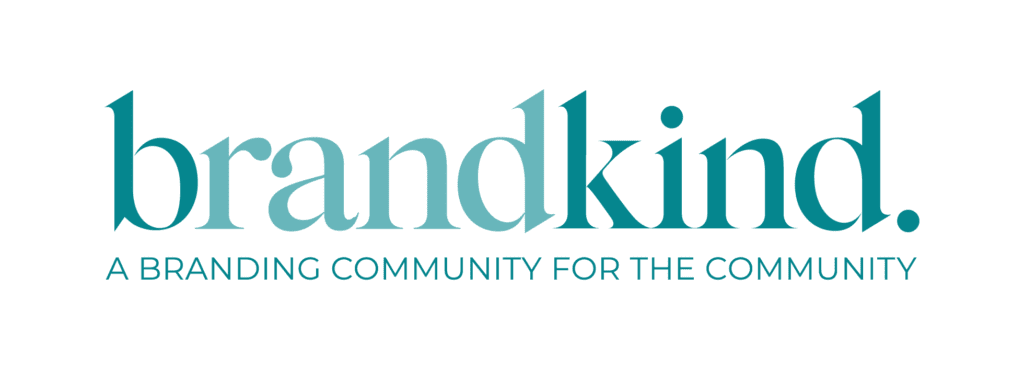Anti-Fraud and Corruption Policy
Introduction
- Brandkind Ltd (Company) is a company limited by guarantee that aims to support Social Enterprises to create and amplify their positive social impact within the community by harnessing the collective branding and marketing skills and resources of a community of highly skilled professionals and, for that purpose, to:
- deliver pro-bono, low-bono and affordable branding and marketing services to Social Enterprises to support them to achieve sustainable growth and thereby increase their impact;
- establish relationships between branding and marketing specialists and Social Enterprises to allow for collaborative and sustainable growth of the Social Enterprises;
- develop training programs for brand and marketing teams within Social Enterprises in order to equip them with the skills to amplify their social impact;
- facilitate mentoring between the Company and refugees, youth and women interested in the marketing and branding space to build their skills and capacity in this area;
- raise awareness and understanding of Social Enterprise including by increasing the presence, credibility and profile of Social Enterprise;
- undertake research into the impact of branding for Social Enterprises in order to encourage more Social Enterprises to utilise the Company’s services to further amplify their impact;
- educate the Social Enterprise sector more broadly on the value of branding via workshops and masterclasses and become a thought leader and branding specialist in the Social Enterprise space;
- build a community of branding and marketing specialist volunteers and consultants to provide branding and marketing services and deliver expertise to Social Enterprises;
- develop partnerships or associations with other organisations, community groups and businesses with aligned objects in order to extend the reach of the Company’s activities;
- raise funds and seek donations of goods and services from the public and volunteers to support the overall objects of the Company; and
- do all things that are incidental or ancillary to the attainment of the above objects, (Objects).
- The Company is currently applying for charity registration with the Australian Charities and Not-for-profits Commission (ACNC).
- The Company is governed by its constitution (Constitution), which requires the Company to pursue its Objects only and apply its income in promoting those Objects.
- Unless otherwise defined, terms used in this Anti-Fraud and Corruption Policy (Policy) have the meaning given in the Company constitution.
Scope
- The Company recognises that the prevention and detection of fraud is the collective responsibility of all Company personnel, including but not limited to company officeholders, employees, contractors, sub-contractors, apprentices, trainees, interns, secondees, consultants and volunteers (Personnel).
- This Policy applies to all Company Personnel without regard to the length of service, title or relationship to the Company of any Personnel.
- Any irregularity or suspected irregularity involving a member, vendor, consultants or any other third party agencies engaging with the Company or its Personnel, is included in the scope of this Policy.
- All Company Personnel must abide by the Policy and understand that it is collective responsibility of all Personnel to prevent fraud by acting in accordance with the Policy and reporting suspected incidents to the Board.
- This Policy does not limit any rights or obligations which the Company’s officers, employees or contractors have at law
Background
- The Company is committed to maintaining the highest level of ethical standards in all its dealings and places great importance on compliance with applicable laws, Company policies and other obligations.
- The Company takes the threat of fraud seriously and is committed to combat fraud and corruption wherever it is found, taking the strongest possible action against staff and third parties who commit fraud. The Company also recognises the importance of fraud prevention and aims to create an organisational culture that discourages any fraudulent or corrupt activities.
- Fraud and corruption:
- breaches the Company’s ethical standards;
- tarnishes the integrity of the Company;
- damages the reputation of the Company;
- negatively impacts the Company’s communities in which it is involved, its sponsors, Personnel, committee members, team and volunteers, and partner organisations;
- are in breach of State and Federal and/or international law and can be a criminal or other offense;
- impedes the ability for the Company to fulfill its Objects; and
- damages public confidence in the Company’s ability to undertake work to further its Objects.
- Preventing and controlling fraud is an integral part of establishing an ethical culture at the Company. The Policy outlines the principles and framework implemented to ensure that the Company is able to minimise the risk of fraud occurring across the organisation.
Objectives of Policy and Principles
- The objective of this Policy is broadly to protect the Company from fraud and corruption by:
- providing some examples of actions that are deemed to be fraudulent so that potential risks and sources of fraud within the organisation may be identified and assessed;
- reinforcing the commitment and responsibility of the Company Board to identify fraudulent and corrupt activities and for establishing policies, controls and procedures for the prevention and detection of these activities;
- reinforcing the requirements for all Company Personnel to refrain from corrupt and fraudulent conduct;
- provide a mechanism and environment for staff to report any instance, or suspected instance, of fraud or corrupt conduct and encourage the reporting of any such instance;
- providing a framework for identifying and assessing potential risks and sources of fraud within the organisation;
- designing effective mitigating controls to reduce the likelihood of fraud and corruption;
- providing a framework for conduct of investigations to ensure that all suspected fraudulent and corrupt activity is dealt with appropriately; and
- assigning responsibility for the development of controls to prevent and detect fraud.
- The key principles governing this Policy and application are:
- The Company has zero tolerance for fraudulent or dishonest activity within the organisation. Any fraud or corruption committed against the Company is a major concern and as a consequence all cases will be thoroughly investigated in a timely manner.
- The Company requires all Personnel at all times to act honestly and with integrity and to safeguard the Company resources for which they are responsible. The Company is committed to protecting all revenue, expenditure and assets from any attempt to gain illegal financial or other benefits.
- Responses to fraud incidents will be objective, timely and comprehensive.
- Company Personnel are required to contribute to the minimisation of fraud occurrence and impacts.
- Appropriate disciplinary action will be taken against any Company Personnel who are found guilty of corrupt or fraudulent conduct. This may include referral to the appropriate law enforcement or regulatory agencies for independent investigation.
Roles and responsibilities
The Board is ultimately responsible for setting the tone at the top and has a responsibility to:
- ensure that there is an effective fraud and corruption risk management framework in place;
- understand the fraud and corruption risks to which the Company is exposed;
- maintain oversight of the fraud risk assessment and the controls in place to mitigate the risks identified; and
- monitor reports on fraud risks, policies and control activities that include obtaining assurance that the controls are effective.
Identification of fraud and corruption
Corruption is defined (for the purposes of this Policy) as a dishonest activity in which any Personnel of the Company act in a manner that is contrary to the interests of the Company and abuses his/her position of trust in order to achieve some personal gain or advantage for him or herself or for another person or entity.
Examples of corrupt conduct include, but are not limited to:
- payment of secret commissions (bribes, facilitation payments or gratuities) in money, or some other value, to other businesses, individuals or public officials;
- receipt of bribes or gratuities from other businesses, individuals or public officials;
- release of confidential information, for other than a proper business purpose, sometimes in exchange for either a financial or non-financial advantage;
Personnel of the Company manipulating a tendering process to achieve a desired outcome; or
- a conflict of interest involving Personnel of the Company acting in his or her own self-interest rather than in the interests of the Company.
- Fraud is defined as an intentional act by one or more individuals, among those charged with governance, officers, employees, contractors or other third parties, involving the use of deception to obtain an unjust or illegal advantage.
Fraud can typically result in actual or potential financial loss to any person or entity however this is not always the case.
Examples of fraud could include, but are not limited to:
- misappropriation of funds, securities, or other assets including use of assets for private purposes;
- causing a loss to the Company or creating a liability for the Company by deception;
- impropriety in the handling or reporting of donations, money or financial records;
- deliberate falsification, concealment, destruction or use of falsified documentation used or intended for use for a normal business purpose;
- profiting from insider knowledge of the Company’s activities or intended activities;
- accepting or seeking anything of value from contractors, vendors or persons providing services to the Company;
- false invoicing for services never rendered or backdating agreements;
- improper or unauthorised expenditure;
- embezzlement;
- submission of exaggerated or wholly fictitious accident, harassment or injury claims; or
- misuse of personal leave.
Fraud mitigation
The Company strives to create an environment that encourages fraud prevention, and will not tolerate any fraud or corruption to any extent. The Company is committed to preventing and dealing promptly and appropriately with fraud and corruption.
Processes employed to prevent and control fraud and corruption are:
- providing tools and resources to support the prevention, detection and investigation of fraud and corruption;
- promoting a culture of ethical behaviour;
- encouraging Personnel to be alert to recognise indicators of possible fraud or corruption;
- implementing a framework for reporting any good faith concerns that fraud or corruption may be occurring in the Company, or in connection with transactions or activities engaged in by the Company, so those concerns can be assessed and, if appropriate, investigated and suitable action taken;
- employing control procedures to prevent the risk of fraud, including:
- workplace policies and culture promoting and encouraging ethical behaviour;
- new Personnel acknowledging policies upon commencement;
- regular policy updates and communication to staff; and
- complying with reporting obligations to external law enforcement or regulatory bodies.
Reporting
The Company has a zero tolerance policy towards fraud and corruption. This means that if you, as Company Personnel, have a concern that fraud may be occurring in the Company, or in connection with transactions or activities engaged in by the Company, you must report it immediately to a member of the Board. A key aim of the Policy is the early detection and escalation of fraud incidents within the organisation.
It is the responsibility of all Company Personnel to report all suspected, attempted or actual fraud or corruption incidents.
All information received is treated confidentially and investigations will not be disclosed to, or discussed with, anyone other than those who have a legitimate need to know or as required by law.
The Company may report any concern raised about fraud or corruption to the police and any relevant funding body, as appropriate.
The Company is committed to ensuring no negative outcomes occur for whistle-blowers acting in good faith.
Assessment
The Company will investigate all reports of fraud or corruption upon notification of a fraud or corruption event.
Investigations will be conducted confidentially, fairly, objectively and without bias. Internal or external investigators may be appointed to investigate all reports.
In the event of an investigation, members of the investigating team will have free and unrestricted access to all the Company’s records and premises. They will have the authority to examine, copy and remove any information within the scope of the investigation.
Incident response
If allegations of fraud are proved to be correct following an assessment in accordance with clause 9, the Company is committed to taking disciplinary action in a transparent manner.
Any finding from an investigation that any Company Personnel or other third party have committed or been involved with fraud or corruption will be taken very seriously. Where relevant, the Company will:
- take disciplinary and / or legal action against the relevant individual, including prosecuting or applying other appropriate sanctions;
- seek the recovery of misappropriated funds or assets;
- terminate the relationship with the third party; and
- where any funds defrauded relate to institutional donors, such as the Australian Government, inform the donor in accordance with any contractual requirements.
Where an investigation identifies that fraud or corruption has occurred, decisions to prosecute or refer the examination results to the appropriate law enforcement or regulatory agency will be made by the Board.
Committing a fraudulent or corrupt act and breach of internal policy is viewed seriously by the Company and Personnel found to be involved will be subject to disciplinary action.
Policy review
This Policy will be reviewed every two years by the Board or earlier if the Board determines a review is necessary to ensure the Policy complies with any applicable legal requirements and remains relevant and effective.
The Board may change this Policy from time to time by resolution.
Questions
Any questions about this Policy should be directed to the Board.



